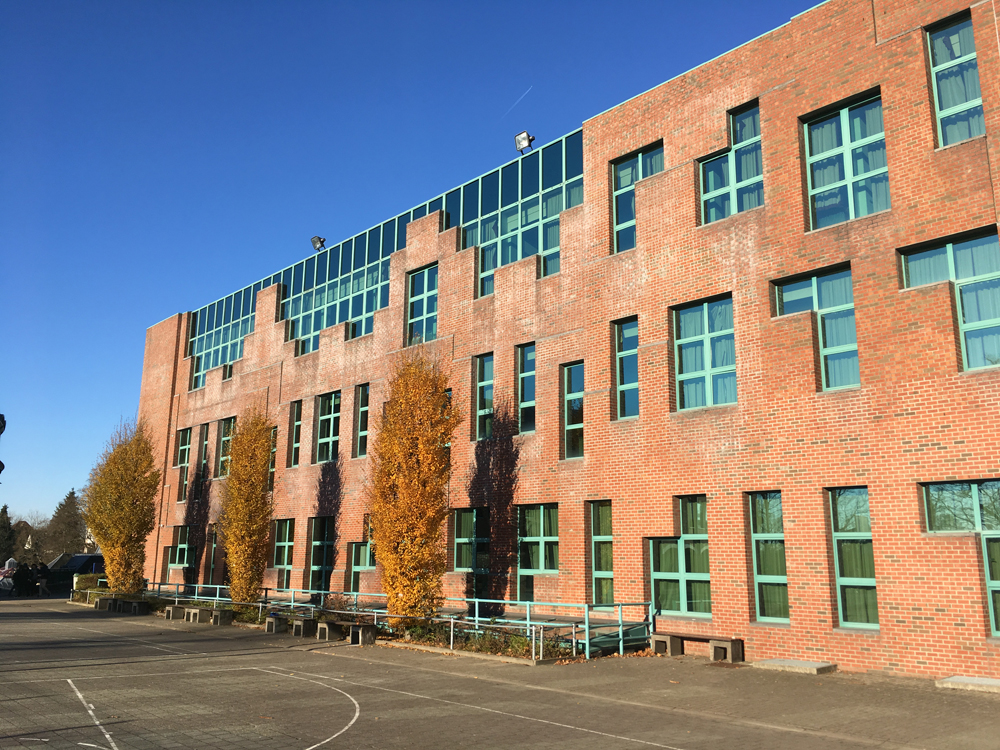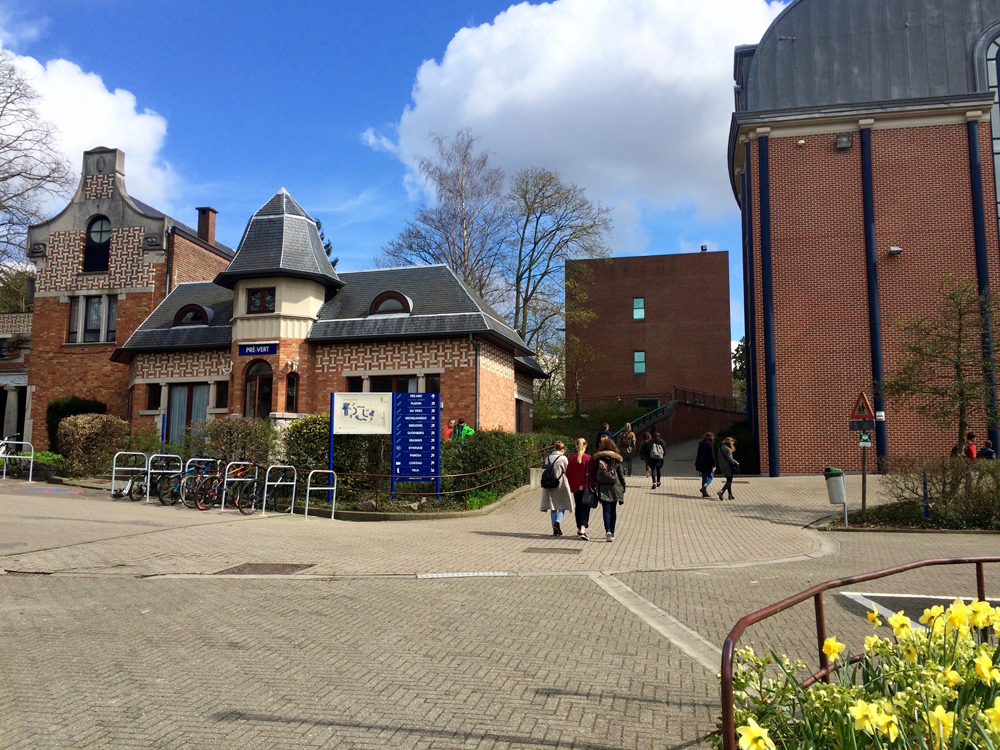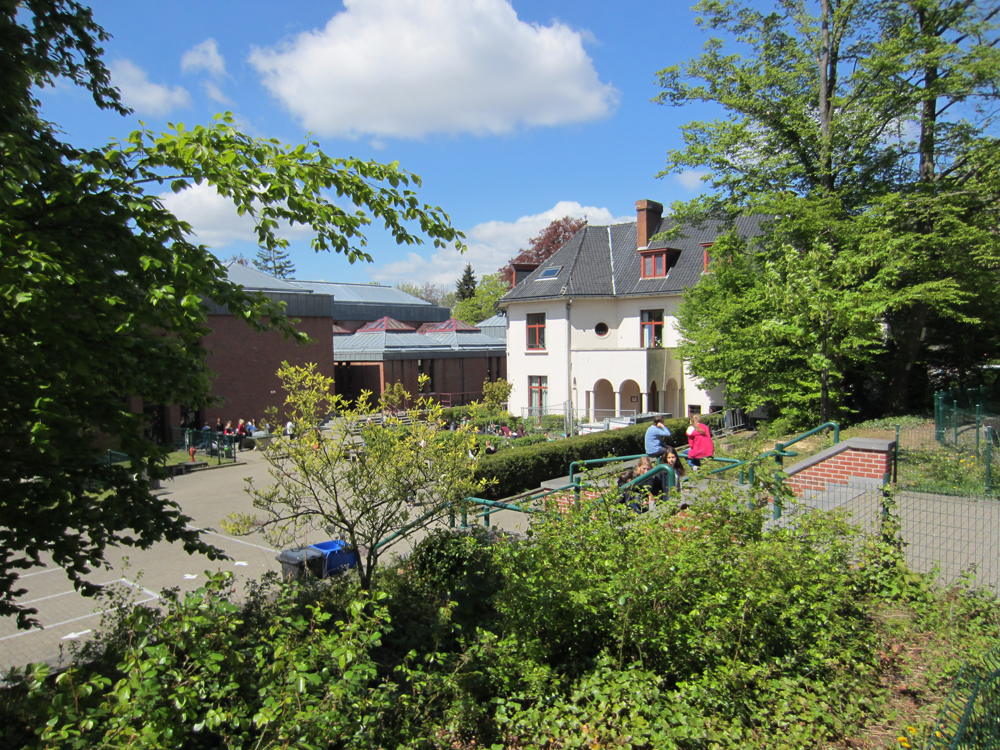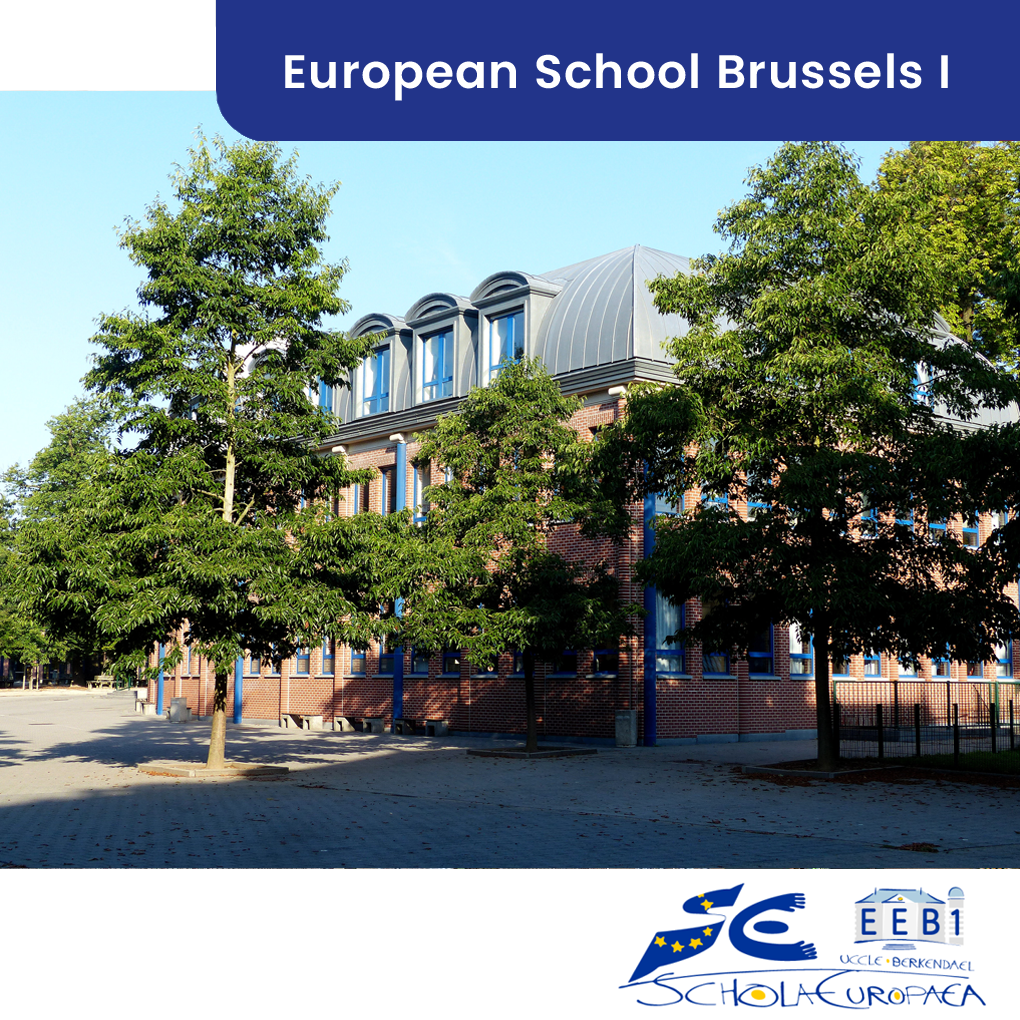
European school in Brussels
European School Brussels 1 Uccle – Berkendael
The European School Brussels I (EEB1) is a European school spread across two campuses: Uccle and Forest (Berkendael). Established in 1958, EEB1 aims to deliver high-quality multilingual and multicultural education within a safe and stimulating environment.
The school hosts approximately 4,094 students (3,354 in Uccle + 740 in Berkendael) representing 60 different nationalities, supported by over 500 staff members from various EU and non-EU countries.
4094
STUDENTS
60
NATIONALITIES
500
EMPLOYEES
Curriculum at the European School Brussels I Uccle – Berkendael
Educational Programme
> Ages 4 to 18
European School Brussels I offers a structured curriculum divided into three cycles:
- Nursery School (ages 4-5) – Uccle & Berkendael campuses
- Objective: Develop children’s personalities, learning skills, respect for others, and environmental awareness.
- Primary School (ages 6-10) – Uccle & Berkendael campuses
- Objective: Emphasis on mother tongue, mathematics, and a first foreign language, integrated with artistic, physical, and discovery activities.
- Secondary School (ages 11-18) – Uccle campus
- Objective: Deepening knowledge in languages, humanities, mathematics, experimental sciences, and philosophy, with elective subjects such as economics or a third foreign language.
Upon completion of the seventh year, students receive the European Baccalaureate, a diploma recognized across the EU and beyond, facilitating university access and international careers.
13 Language Sections
+ other languages taught
European School Brussels I is deeply committed to promoting European spirit and values such as diversity, respect, and cooperation.
Students experience an environment where cultural and linguistic diversity is omnipresent, preparing them optimally for a globalized world.
EEB1 offers courses in 13 main language sections: Danish (DA), German (DE), Greek (EL), English (EN), Spanish (ES), French (FR), Hungarian (HU), Italian (IT), Latvian (LV), Maltese (MT), Polish (PL), Slovak (SK), and Slovenian (SL).
Additionally, courses are available in other languages such as Bulgarian, Croatian, Greek, Irish, Dutch, Portuguese, and Romanian, reflecting Europe’s linguistic richness.
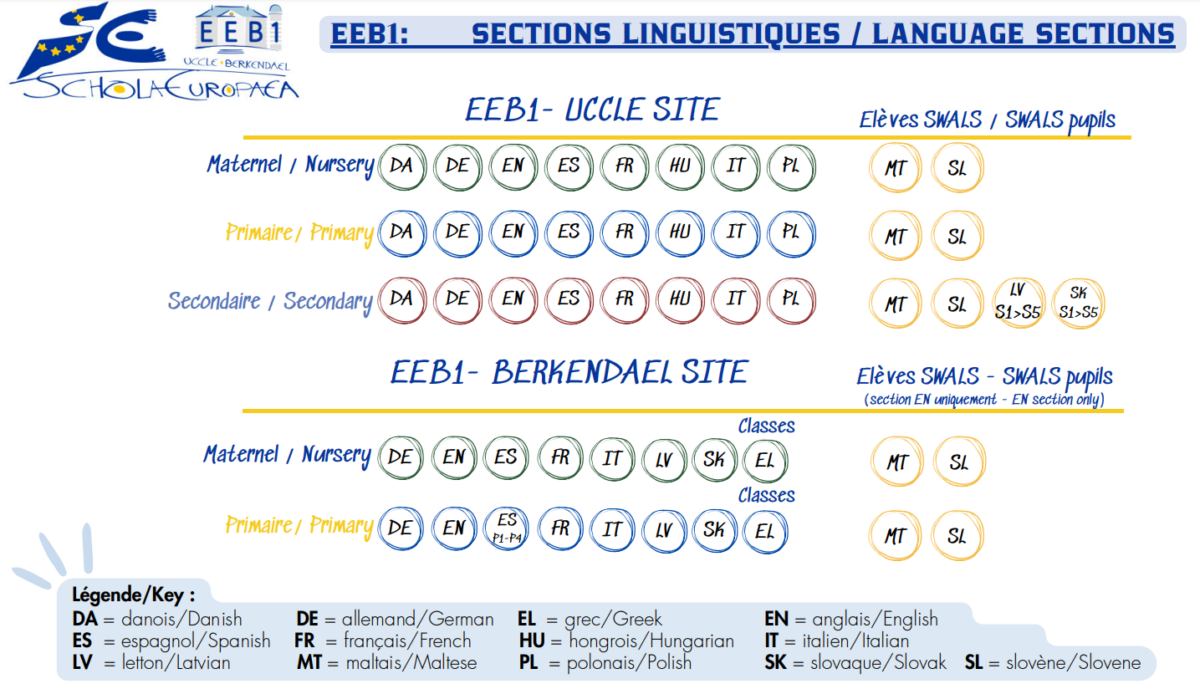
Parents’ Association (APEEE)
An active and supportive community
European School Brussels I benefits from active support from the Parents’ Association (APEEE) and APEEE Services, two non-profit organizations independent from the school but essential to student and family life.
The APEEE represents parents with the school administration, addressing key issues such as education, administration, and student welfare.
The APEEE Services manage essential services on Uccle and Berkendael campuses, including:
- Canteen (Uccle only) – Over 3,100 meals served daily
- School Transport (Uccle & Berkendael) – Over 70 buses supervised by adult monitors
- Extracurricular Activities (Uccle & Berkendael) – Diverse programs led by about sixty instructors
- School Lockers (Uccle only)
- Friday Afternoon Childcare (Uccle & Berkendael)
Admission Requirements | European School Brussels I Uccle
Admission to European Schools is based on a category system (I, II, and III), defining admission priorities and fees. Students not falling into any category cannot be enrolled.
Category I: Priority and Free Admission
Children of employees of EU institutions and affiliated organizations (European Commission, European Parliament, EIB, etc.) have guaranteed spots and exemption from tuition fees.
This includes:
- EU institution officials and contract agents
- National experts seconded to institutions
- European School teachers and staff
- Staff of the EIF Secretariat and other approved bodies
Category II: Admission under Special Agreements
Students in this category are admitted based on specific agreements between European Schools and certain organizations or companies. These agreements specify rights and financial contributions towards tuition fees.
Category III: Admission Subject to Availability
Students not falling into Categories I or II. Admission depends on available places and requires tuition fees set by the Board of Governors of the European Schools.
Priority for Category III:
- Children of diplomats and national officials stationed in Brussels.
- Children of diplomatic personnel returning to their home country where integration is difficult.
- Children of staff from non-EU permanent representations.
- Children of diplomatic status staff based in Brussels and Luxembourg.
- Children from families whose mother tongue or previous instruction language doesn’t match national education languages.

